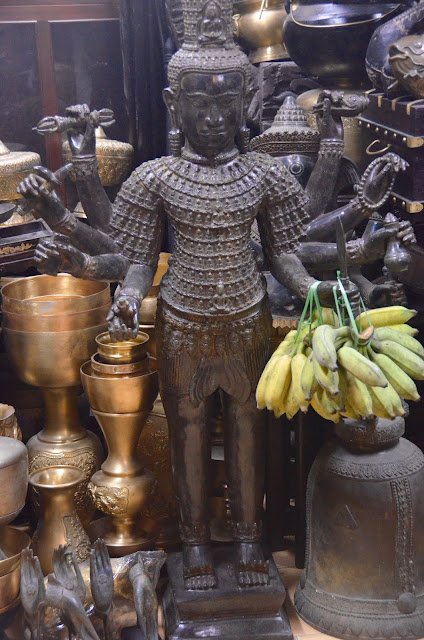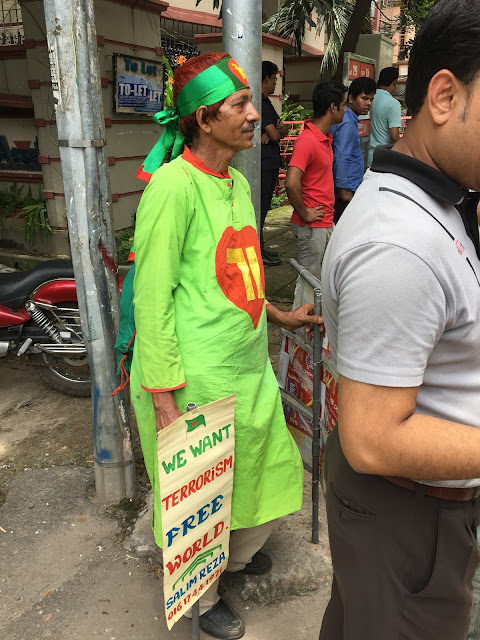
Life brings many surprises. I have been confronted with a wall of love, generosity and friendship.
This little, overpopulated country has occupied a corner of my heart. Totally unintentionally.
I couldn't ever imagine that leaving Bangladesh would be so difficult.

There is a saying that one cries when one comes to Bangladesh and one cries when one leaves Bangladesh.
There has been a lot of crying also in the meantime. Life has not always been easy for me but definitely not for most Bangladeshis with so much poverty, misery, injustice, inequality, sickness and suffering.
160 million people, 160 million destinies - with the majority living very modestly, a large number in utter poverty.

The hardest - and the best - lesson has been to realize that people can be totally happy with very little. And that they work really hard for a better life, especially for their children. Many have, fortunately, understood that education is the key for better jobs and a little easier life.
Our driver K. is a good example of the hard-working Bangladeshis with a will and stamina. K. has no formal education but he knows everything about cars. His uncle taught him to drive, and now K. knows every single street and shortcut in Dhaka.
His plan is to give his children a good education, the opportunities that he never got.
Some of the pictures in this posting are from K's village.
But let's not get too sensitive, this is hard love. There are many things that I will definitely not miss:
Open sewages - they smell, host mosquitoes and do not exactly beautify the city.
Urinating men in the streets - too common a sight. It's not the men's fault, Dhaka has no public toilets. Women suffer even more.
Spitting men - sometimes walking the streets was like wading in fat saliva.
Dhaka airport - a total turndown, ugly, worn, slow, cold in the winter, hot in the summer. Often waiting for luggage takes more time than the actual flight.
Local dress code - in clear contrast with the climate. The temperature calls for shorts and armless tops, the religion for covering your body from top to toe.
Mosquitoes - are the most dangerous beasts in Bangladesh. "Everybody" is nowadays suffering from chikungynua, which causes high fever, joint pain and rash.
Traffic - After Dhaka, any traffic jam is a joke. After Dhaka, any public transport form feels like business class.
There are also many saddening things:
Girls' and women's position - More and more women feel unsafe. More and more women are fully covered. Child marriage is still a huge problem.
Growing gap between the really poor and the really rich - The social safety net is non-existing, solidarity is scarce.
Fierce competition for opportunities - leads often to foul play, bribes and violence. The weakest suffer most.
Goodbye Bangladesh!














































